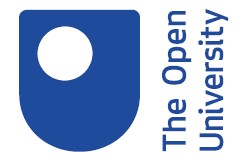Buckinghamshire New University is on track to be carbon net zero by 2030 – 20 years earlier than the Government’s target – following a series of projects that have reduced its carbon footprint by 55% since 2011.
BNU’s progress towards achieving carbon neutrality is attributed to enhanced campuses, energy savings, responsible waste management, upcycling, and environmental research that has local and international benefits. In 2019, BNU became the first university in the UK to achieve gold accreditation in a scheme which recognises sustainable and ethical businesses.
A snapshot of the projects undertaken so far are described below:
- In 2021, BNU invested £255k for photovoltaic cells places on three buildings at its High Wycombe campus. Since installation, these cells have generated 920,581 kWhs of power and generated significant cost savings.
- Installation of solar panels capable of producing up to 138,000 kWhs of energy per year, equating to an annual saving of 70 tonnes of carbon.
- The Bucks New Usage upcycling scheme redistributes used and unwanted items from student accommodation, such as bedding and small electricals. Clothing and excess items are donated locally to the YMCA or Wycombe Food Hub.
- Various environmental research through European and international projects relating to conservation and sustainability have been completed or are ongoing, including the socio-economic valuation of climate impact chains and decarbonisation pathways in European islands.
Professor Nick Braisby, Vice-Chancellor of Buckinghamshire New University, said:
“As COP26 comes to Glasgow for the next fortnight, there is an increasing focus on what the UK and its educational institutions are doing to achieve carbon neutrality. BNU is proudly on track to achieve this by 2030 and, as a civic university, we will do everything we can to support and engage with local businesses and communities to help them do the same.”
BNU is one of 1050 universities and colleges from 68 countries that have signed up to the global Race to Zero pledge to half their emissions by 2030 and reach net-zero as soon as possible, impacting over 10 million students worldwide. The initiative is led by EAUC (The Alliance for Sustainability Leadership in Education) and Second Nature with support from the UN Environment Programme (UNEP).









